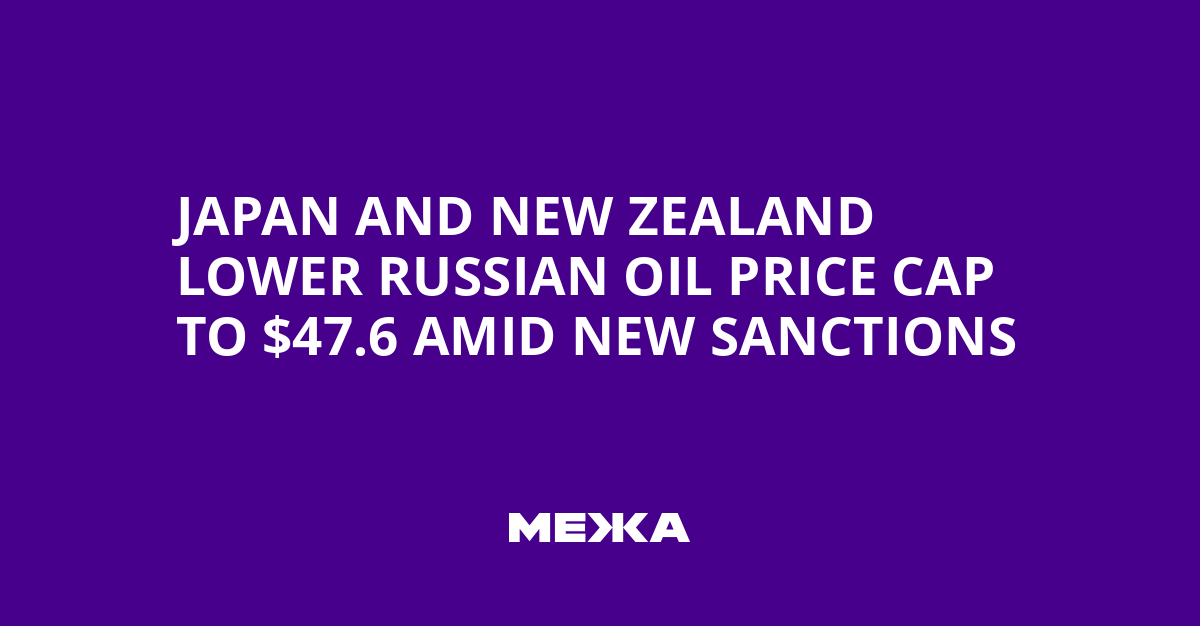From September 12, Japan and New Zealand lowered the price cap on Russian oil from $60 to $47.60 per barrel. Canada, the EU, and the United Kingdom also joined the initiative, introducing new sanctions against Russia for its aggression against Ukraine, governments and Reuters report.
According to official authorities, the new threshold will apply to contracts concluded after September 12 and to shipments from October 17. In Europe, they emphasize that this step is a continuation of the July 18 package of sanctions, which reduced the price of Russian oil to $47.60 per barrel.
Context and Economic Consequences
In Tokyo, they say that Japan is also imposing additional sanctions on asset freezes and export controls against Russian and related entities to support global efforts toward peace in Ukraine. However, the price drop is not expected to have a significant impact on the volume of crude oil imports from the country.
It is noted that Japan continues to purchase Sakhalin Blend – a byproduct of the Sakhalin-2 project, which is important for energy security. According to the Ministry of Finance, from January to July the country imported 599,413 barrels of crude oil from Russia, accounting for about 0.1% of total imports. Export restrictions were also imposed on two Russian companies and nine businesses from the UAE, Turkey, and China, and sanctions affected 14 individuals and 48 companies and organizations from Russia and affiliated entities; sanctions measures have been applied to a number of entities from the Seychelles and the Marshall Islands.
New Zealand has also lowered the price cap on Russian oil to $47.60 per barrel, joining Canada, the EU, and the United Kingdom. This has become part of joint efforts to curb funding for aggression against Ukraine. The statement was officially confirmed by New Zealand’s Ministry of Foreign Affairs and Trade.
“Reducing the price cap from $60 per barrel to $47.60 per barrel is a carefully considered move to reduce the critical oil revenues fueling Putin’s illegal war of aggression against Ukraine.”
– Foreign Minister Winston Peters
In response to cyberattacks, Ukraine also notes the tightening of sanctions: New Zealand has included Russian entities and ships on the sanctions lists, complementing the 32nd package aimed at 19 individuals and 19 ships. The European Union ratified the 18th package, which expands prohibitions and strengthens the application of dynamic price restrictions.
Such coordinated Western actions amid Russia’s aggression demonstrate how pressure on Russia’s financial flows can affect the energy sector and support for Ukraine.
